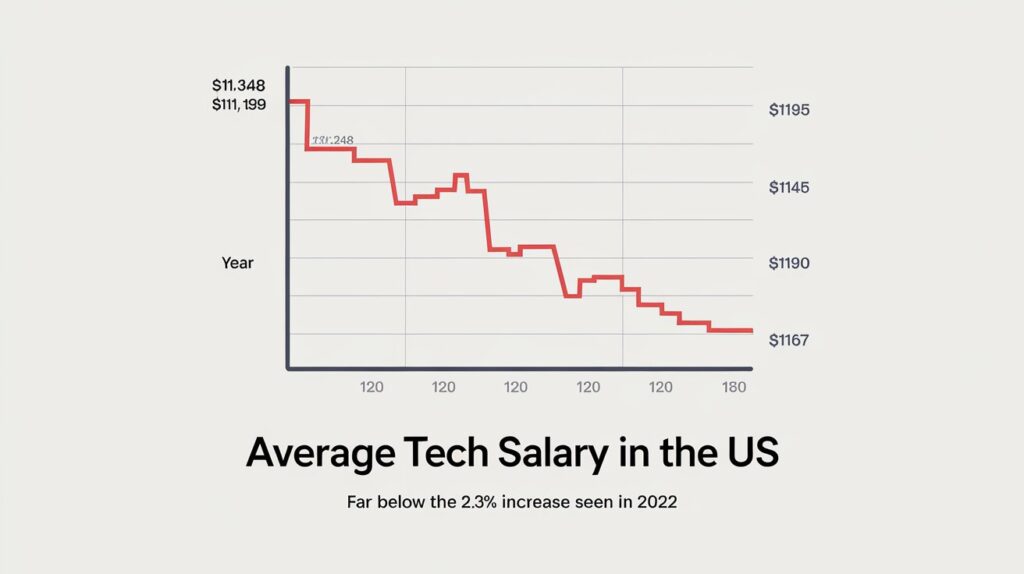Working in the software industry in India for several years, I’ve seen the job market evolve but not shrink. While some tasks are automated, new roles constantly emerge as technology advances. Overall, the opportunities in software remain plentiful.
The number of software jobs in India is unlikely to decrease significantly. While automation and AI may change some roles, the growing demand for technology and digital solutions continues to create new opportunities. The software industry in India is expected to remain strong and adaptable.
This article dives deep into the factors influencing this topic, offering insights and analyses to understand the future of India’s software job market.
The Evolution of India’s Software Industry
India’s journey to becoming a global IT powerhouse began in the late 20th century, with the rise of multinational corporations (MNCs) outsourcing their software development and IT needs to the country. The availability of a large, skilled workforce and cost-effective services made India an attractive destination. Cities like Bangalore, Hyderabad, and Pune became tech hubs, contributing significantly to India’s GDP and providing millions of jobs.
However, the landscape is changing. Technological advancements, such as automation, artificial intelligence (AI), and machine learning (ML), are transforming how software development is approached, potentially impacting the demand for traditional software jobs.
Key Factors Impacting Software Jobs in India:

1. Automation and AI: The Game-Changers
Automation and AI are increasingly handling tasks previously done by humans. From basic coding to complex problem-solving, these technologies can perform tasks more efficiently and with fewer errors. This shift could lead to a decrease in the demand for human software developers, particularly for routine tasks.
2. Global Economic Shifts
Global economic uncertainties, including trade tensions and shifts in outsourcing patterns, could affect India’s software industry. Companies in the U.S. and Europe are re-evaluating their outsourcing strategies, sometimes opting to keep software development closer to home due to political and economic pressures.
3. Education and Skill Gaps
As technology evolves, the skills required by the software industry are also changing. There is a growing need for expertise in new areas such as AI, data science, and cybersecurity. However, there is concern that the current education system in India may not be evolving quickly enough to meet these new demands, potentially leading to a skills gap.
4. Remote Work and Global Competition
The COVID-19 pandemic has normalized remote work, making it easier for companies to hire talent from anywhere in the world. While this can be an advantage for Indian software professionals, it also increases competition, as companies are no longer restricted to hiring within their geographical regions.
5. Government Policies and Economic Reforms
Government initiatives such as “Make in India” and “Digital India” aim to boost the local IT industry. However, the effectiveness of these policies in sustaining or growing software jobs remains to be seen, especially in the face of global challenges.
Current Trends: Are Software Jobs Already Decreasing?
There is evidence that the software job market in India is undergoing changes:
- Shift in Job Roles: While traditional software development roles may see a decline, there is growing demand for roles in AI, data analytics, and cybersecurity.
- Rise of Startups: India’s startup ecosystem is booming, with many new companies focusing on cutting-edge technologies. This shift may create new job opportunities, albeit in different roles than those traditionally associated with the software industry.
- Reskilling and Upskilling: Many professionals are recognizing the need to adapt by reskilling in areas like AI and data science. Companies are also investing in training programs to help their employees transition to new roles.
Are software salaries going down?

In the US, the average tech salary went down – from $111,348 to $111,193 – far below the 2.3% increase seen in 2022. Beyond salaries, trends show that companies are also cutting back on the amount of equity offered in compensation packages.
The Future Outlook: What’s Next for Software Jobs in India?
Despite the challenges, the future of software jobs in India is not bleak. Here are some potential outcomes:
1. Transformation, Not Elimination
While some traditional software jobs may decrease, new roles in emerging technologies will likely offset this decline. The industry is not shrinking but evolving, requiring professionals to adapt.
2. Increased Focus on Innovation
As routine tasks become automated, the emphasis will shift towards innovation and problem-solving. India’s software industry may focus more on developing new products, technologies, and solutions, rather than just providing services.
3. Global Integration
The trend towards remote work and global collaboration will continue, allowing Indian professionals to work on international projects without leaving the country. This could lead to a more integrated global software workforce.
4. Policy and Education Reforms
For India to maintain its position as a software leader, there will need to be continued focus on education reforms and policies that support the industry’s growth. This includes fostering innovation, supporting startups, and ensuring that the workforce is equipped with the skills needed for the future.
Why are companies outsourcing to India?

Outsourcing to India helps companies reinvent their business strategies and achieve scalability, operational efficiency and business growth. Business process outsourcing originated as a cost saving activity, assuring timely delivery of quality projects.
FAQ’s
1. Will automation completely replace software jobs in India?
No, automation won’t completely replace software jobs. While it may reduce demand for routine tasks, it will create new opportunities in AI, data science, and cybersecurity.
2. How can software professionals in India stay relevant?
Reskilling and upskilling in AI, machine learning, data science, and cybersecurity are crucial to stay competitive in the evolving job market.
3. Is remote work an opportunity or a threat to Indian software jobs?
Remote work is both an opportunity and a threat; it increases competition but also allows Indian professionals to work on global projects without relocating.
4. What role will startups play in the future of software jobs in India?
Startups will drive growth by creating new opportunities, especially in innovative and emerging technologies.
5. Are government policies in India supporting the software industry?
Yes, policies like “Make in India” and “Digital India” support the industry, though their success depends on effective implementation and adaptation to global trends.
6. What skills will be in demand in the future software job market in India?
AI, machine learning, data science, cybersecurity, and cloud computing skills will be in high demand.
7. How does the education system in India need to change to support future software jobs?
The education system must emphasize emerging technologies, practical problem-solving, and industry collaboration.
8. Will the demand for traditional software development decrease?
Yes, demand for traditional software development may decrease, but there will still be a need for developers in more complex and innovative areas.
9. What are the risks of outsourcing moving away from India?
Risks include job losses and reduced economic growth, but innovation and high-quality services can mitigate these risks.
10. What is the long-term outlook for software jobs in India?
The outlook is cautiously optimistic; the nature of jobs will change, but opportunities will remain for those who adapt.
Conclusion:
The question of whether software jobs will decrease in India is complex and cannot be answered with a simple yes or no. While certain traditional roles may decline due to automation and other factors, the industry is also witnessing the creation of new opportunities in emerging fields.
The key to navigating this transition will be adaptability—both for professionals and for the industry as a whole.

